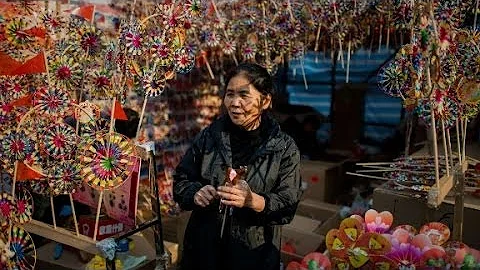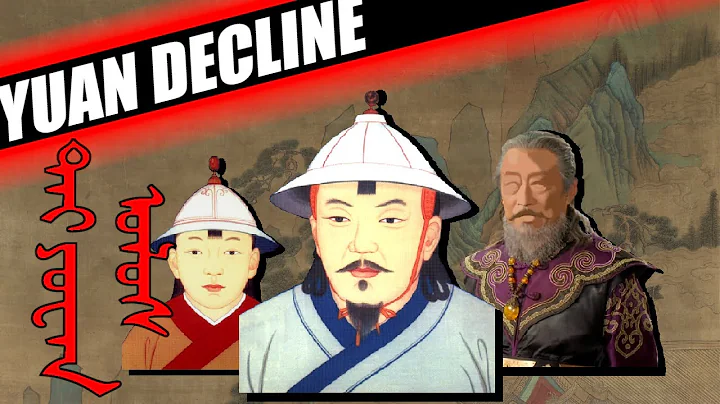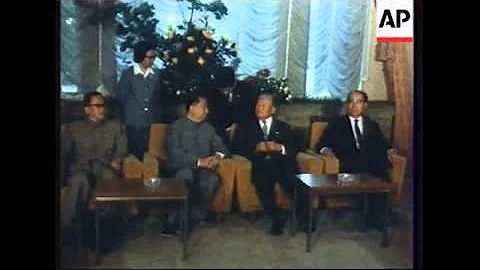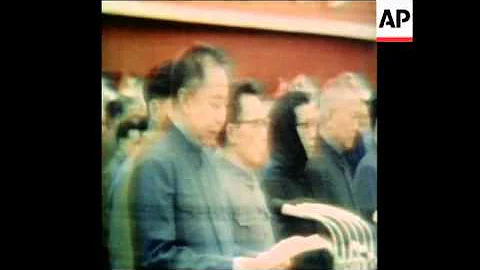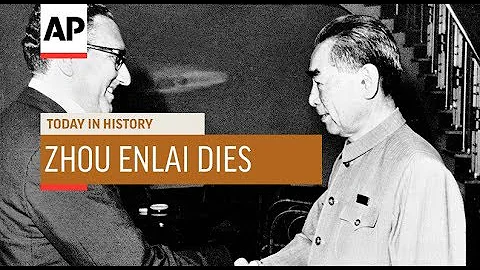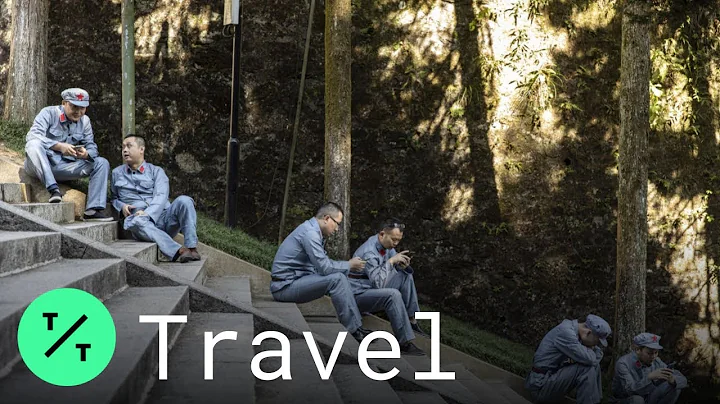In the last 20 years of the Qing Dynasty , the most powerful one should be the Beiyang New Army trained by Yuan Shikai . In the 31st year of Guangxu (1905), Yuan Shikai built six towns in Beijing, Tianjin and Shandong based on the Beiyang Standing Army, the Beijing Banner Standing Army, the original Wuwei Right Army and the First Section of the Ziqiang Army, with Fengshan as the base. , Wang Yingkai , Duan Qirui , Wu Fengling , Wu Changchun , Wang Shizhen were appointed to control the 1st to 6th towns, with a total of more than 70,000 people. The town mentioned here is not a small town or a township, but an establishment of the army in the late Qing Dynasty. This article will talk with you about who controls these six towns and their endings.
1, the first town commander Fengshan
Fengshan was a member of the Xiangbai Banner of the Han Army. After the six towns of Beiyang were established, Fengshan was appointed as the first town commander. After that, he successively served as Xi'an general, trained ministers of various towns in Kinki, and Jingzhou General and other positions. After Emperor Xuantong succeeded to the throne, Fengshan was changed to the general of Guangzhou. During the Wuchang Uprising , the revolutionaries attacked Guangzhou City. Fengshan was killed by a bomb by the revolutionaries. The Qing court gave him the title of Prince Shaobao.
After Fengshan, Yuan Shikai's confidant He Zonglian served as the governor of the first town. In his early years, He Zonglian served as a soldier under Wu Changqing of the Qing army and followed Wu Changqing to North Korea to suppress the mutiny. Later, he served in the Beiyang Standing Army and Dingwu Army.

He Zonglian
In 1915, He Zonglian was appointed as the Attendant Military Attache of the Presidential Palace by Yuan Shikai. Later, he was awarded a first-class baron for supporting Yuan Shikai's restoration of the monarchy. In 1918, he was appointed as General Biwei. Later, he borrowed the opportunity to visit the tombs and worship ancestors in Pingyin, Shandong Province, carrying With the savings and the 50,000 ocean sent by Yuan Shikai, the family moved to Jinan and no longer interfered with military and political affairs. Died of illness in 1931.
2. Wang Yingkai, the commander of the second town, and Zhang Huaizhi
Wang Yingkai was from Haicheng, Liaoning, and was the brother-in-law of the great warlord Sun Chuanfang. He began to be appreciated by the Qing court for his outstanding performance during the Sino-Japanese War of 1894.. In 1895, Wang Yingkai entered Yuan Shikai's newly established army and became the early backbone of the Beiyang Army. After the six towns of Beiyang were established, Wang Yingkai was appointed as the commander of the second town.
Wang Yingkai was stricter and more considerate of the soldiers under his rule, so he was deeply loved by the soldiers. The "stand at attention" and "take a break" we are using now are passwords understood by all ages. Wang Yingkai changed them from German . Wang Yingkai died of illness in Beijing in 1908 at the age of 48.

Wang Yingkai
Zhang Huaizhi, a native of Dong'e, Shandong Province, joined the New Army trained by Yuan Shikai in 1895. He successively served as the fourth commander of the Beiyang Standing Army's Zuozhen Troops, the associate commander of the Zuozhen Buyi Association of the Beiyang Standing Army, and Shanhaiguan defense camp commander, Beiyang second town commander, Beiyang fifth town commander and other positions.
After the founding of the Republic of China, Zhang Huaizhi successively served as the military counselor of the Presidential Palace, the commander-in-chief of the Baoding Remaining Defense, the Chahar Dutong, the governor of Shandong, the Chief of Staff of the Beiyang Governmentand the former director of the Enemy General Law Enforcement Division. . After Zhili was defeated in the Second Zhili-Fengtian War, Zhang Huaizhi left his job and lived idle. He died of illness in Tianjin in 1934 at the age of 72.

Zhang Huaizhi
3, Duan Qirui, the leader of the 3rd town, Duan Zhigui, Cao Kun
Duan Qirui, a native of Hefei, Anhui, is the leader of the Beiyang-Anhui clan, and is known as the "Tiger of the North". Duan Qirui successively served as commander of the 3rd Battalion of the newly-built Army Left Artillery Battalion, general office of the schools of the right army of the Chongwu Guard, military commander of the Military Training Department, commander of the Third Beiyang Town, and admiral of Jiangbei.

Duan Qirui
After the founding of the Republic of China, Duan Qirui founded the Republic of China and was the actual person in power of the Beiyang government from 1916 to 1920. From 1924 to 1926, he served as the temporary power of the Republic of China. After the "September 18th" incident, the Japanese coerced Duan Qirui to go to the Northeast to organize a puppet government, but Duan strictly refused. On November 2, 1936, Duan Qirui passed away in Shanghai Hongen Hospital.
Duan Zhigui, a native of Hefei, Anhui Province, graduated from Beiyang Military Academy . He successively served as the commander of the second left wing battalion of the newly established army force, the general office of the Staff Office of the Zhili Military and Political Department, the general office of the Tianjin Southern Section Patrol Bureau, and the third town Controller, General Office of the Military Affairs Office of the Three Eastern Provinces, Governor of Heilongjiang, Governor of Mongolia, Governor of Huguang, etc.
After the founding of the Republic of China, Duan Zhigui served as the commander-in-chief of the Arch Guards, Dutong Commander of Chahar, Jiangxi Xuanfu Envoy and Commander of the First Army, Fengtian Patrol Envoy, and Capital Garrison Commander. He died of illness in Tianjin in 1925 at the age of 56.

Duan Zhigui
Cao Kun, a native of Tanggu, Tianjin, is the direct leader of Beiyang and the fifth president of the Republic of China. After graduating from Tianjin Military Academy , Cao Kun served as a sentry officer in Yijun, and later became the backbone of Yuan Shikai's military training station. In 1907, he was appointed by Yuan Shikai as the commander of the third town.
After Yuan Shikai's death, Cao Kun wandered between the Zhili and Anhui cliques. After Feng Guozhang died, Cao Kun became the leader of the Zhili clique. He successively won the victories in the Zhili-Anhui War and The First Zhili-Fengzhi War , became a powerful figure who dominated the central power. In 1923, Cao Kun bribed to become the president of the Republic of China. On May 17, 1938, Cao Kun died of illness in Tianjin. In December 1939, Cao Kun was posthumously promoted to the rank of first-class general of the Army by the National Government.

Cao Kun
4, Wu Fengling, the ruler of the 4th town
Wu Fengling is the son of a servant of Yuan Shikai's family. He grew up in Yuan Shikai's family. He is a direct descendant of Yuan Shikai. He served as Yuan Shikai's bodyguard in North Korea and was promoted later. As the sentry commander of the personal soldiers. After the establishment of Beiyang Six Towns, he served as the commander of the 4th Town. During the Revolution of 1911, he led the 4th Town to suppress the Wuchang Uprising. He died of illness in 1912.
5, Wu Changchun, the commander of the 5th town
Wu Changchun, a native of Lujiang, Anhui, passed the imperial examination in the fifth year of Guangxu (1879). He was the cousin of Yuan Shikai's old boss Wu Changqing. During the Sino-Japanese Sino-Japanese War of 1899 , Wu Changchun was stationed in Lushun and fought bloody battles with the Japanese army for more than sixty days. His mount was hit by bullets, but he showed no fear. He has successively served as registered admiral, commander-in-chief of the Tianjin town, commander of the newly-established Army Infantry Right Wing Second Battalion, wing commander of the second town of the Beiyang Standing Army, and commander of the fourth and fifth towns of the Army. , died in 1906 at the age of 51.

Wu Changqing
6, the 6th Town Dutong Wang Shizhen, Zhao Guoxian
Wang Shizhen, a native of Zhili Zhengding, one of the Three Heroes of Beiyang. After graduating from Tianjin Military Academy, he returned to Shanhaiguan to teach the artillery team. With his extraordinary intelligence and excellence His political achievements won the favor of Yuan Shikai , and he successively held important military and political positions until he was Minister of Army, Chief of General Staff and Prime Minister of the Government. In 1918, he withdrew from politics and lived in seclusion in Beijing. In May 1926, he served as the interim president of the Beijing Security Council and the president of the Beijing Relief Federation. In July 1930, he suffered from liver cancer and died in Beijing at the age of 70.

Wang Shizhen
Zhao Guoxian, a native of Xiangcheng, Henan, a fellow villager of Yuan Shikai, later became Yuan Shikai's confidant. He was shot dead by the revolutionary party in Chaozhou during the Revolution of 1911.





